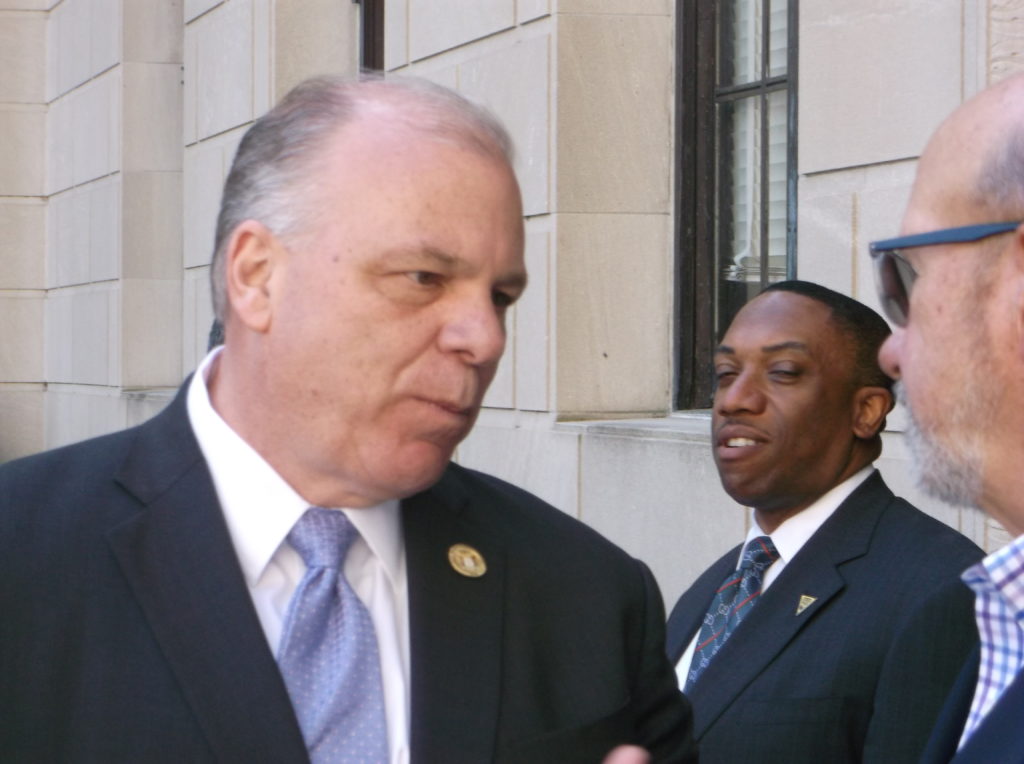ELEC: Sweeney 2017 was Indeed the Most Expensive Legislative Campaign Ever

A historic burst of spending in 2017 funded the nation’s most expensive campaign ever in a single legislative district while also wiping out several state records, according to a new report by the New Jersey Election Law Enforcement Commission (ELEC).
“With the dust now settled, ELEC has further verified that the 2017 showdown in the third legislative district was the most costly campaign in American history,” said Joseph Donohue, deputy director and author of the study. “Inadequate disclosure by independent spenders made it impossible to specify the exact cost. However, ELEC estimates the price tag around $24 million disregarding inflation.”
Most Expensive State Legislative Elections Nationally State Year Winner Party Independent
Spending Candidates Spending Total Inflation Adjusted
NJ 2017 Sweeney, Senate President Steve Democrat $19,780,794* $ 4,322,147 $24,100,941 $25,075,762
IL 2016 Durkin, Republican Leader Jim Republican $ 101,900 $18,443,974 $18,545,874 1 $19,824,807
CA 2008 Strickland, Senator Tony Republican $ 2,378,843 $ 8,365,446 $10,744,289 $12,803,042
TX 2018 Paxton, Senator Angela Republican $ 186,614 $12,091,130 $12,277,744 $12,544,268
CA 2016 Grayson, Assemblyman Tim Democrat $ 9,264,075 $ 1,606,252 $10,870,327 $11,619,950
(Same as Table 15, page 12 from White Paper 28) *estimate
“ELEC could find no state legislative campaign ever throughout the United States that was more expensive. The race cost more than some past gubernatorial and U.S. Senate races in New Jersey. It is triple the previous high for spending in a legislative district in our state,” he said.
1 From candidate’s quarterly report filed January 17, 2017 at https://www.elections.il.gov/#News.
Nearly all the money was transferred outside district. Jim Durkin is House Republican leader. During the 2016 election, he had $1 million in cash and received $17.7 million in contributions, including $12 million from then-Governor Bruce Rauner and $5 million from Kenneth Griffin. He then transferred $18.3 million to House Republicans and the state party.
More details are contained in the analysis entitled: White Paper 28: “Legislative Election 2017-The
Mother of All NJ Legislative Races.”
“We may never see another legislative race of this magnitude again,’’ said Donohue. “Then again, who knows, given how explosive independent special interest spending has become in the state and throughout the nation.”
The 2017 legislative election set many new state records.
It was the most expensive legislative general election in New Jersey history ($70.7 million). It featured most independent spending in a Garden State legislative election ever ($26.6 million) and the highest percentage of independent spending 37.6 percent (Three preceding figures from Table 1).
The large wave of spending also led to the highest average spending per seat and district (Table 2).
Contributions by continuing political committees, also called PACs, to legislative races hit a new high of $8.2 million in 2017 (Table 12). Contributions from union-controlled PACs also hit a new milestone (Table 14).
Mass media spending overall reached a record $34.9 million (Table 19) and television spending surged to a hefty $20.3 million (Table 23). Digital advertising topped a record $2.4 million (Table 25).
“At least $2.4 million was spent on digital ads in the 2017 campaign. That figure is more than triple the combined total spent on cyber-ads in all eight preceding legislative elections dating back to 2001,’’ said Donohue.
“It is a clear sign that the digital platform has become an indispensable option in campaign toolboxes. This parallels a similar trend in federal campaigns.”
Donohue said the growing involvement of independent groups in New Jersey elections makes it imperative to enact a new state law that requires these groups to disclose their major contributions and spending just like candidates, parties and traditional political action committees.
“Better disclosure laws were important when our bi-partisan commission in 2010 unanimously urged reforms a few months after the Citizens United v. FEC ruling unleashed a major new wave of independent spending. They may be even more critical now that independent groups often seem to be calling the shots in today’s elections,” said Donohue.
pr_05072020 (1)







Leave a Reply